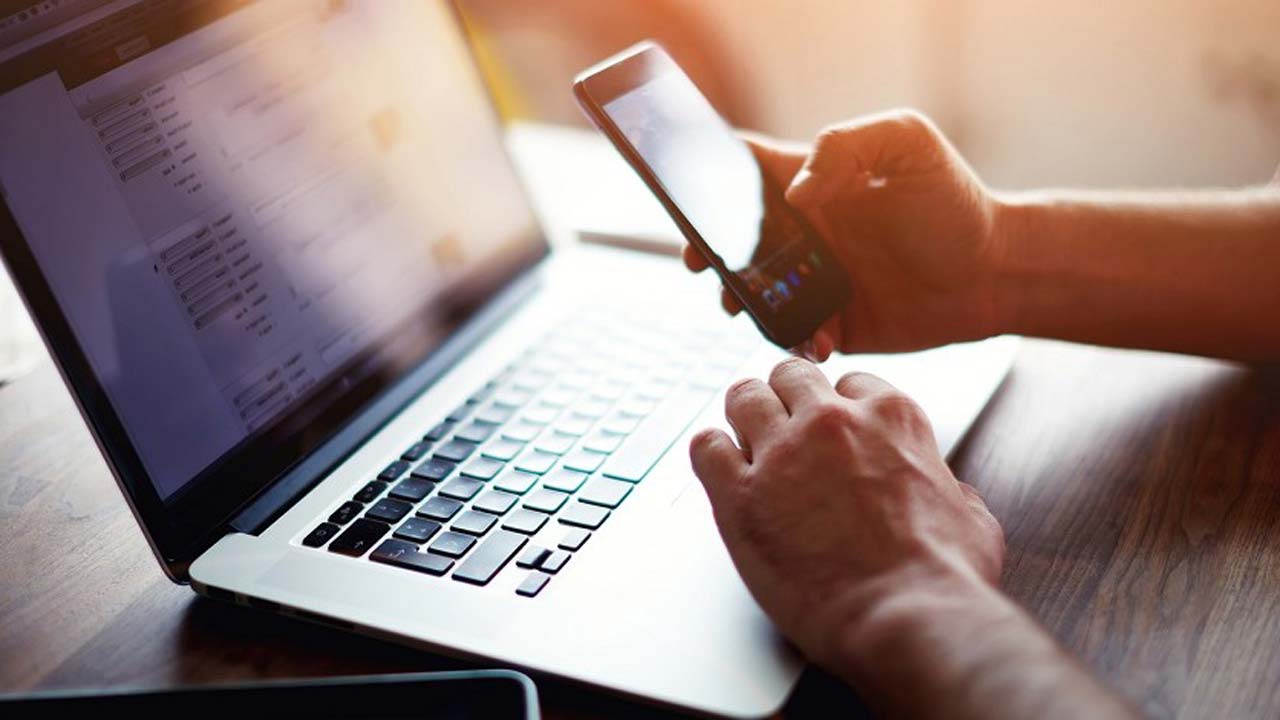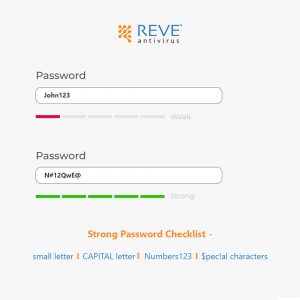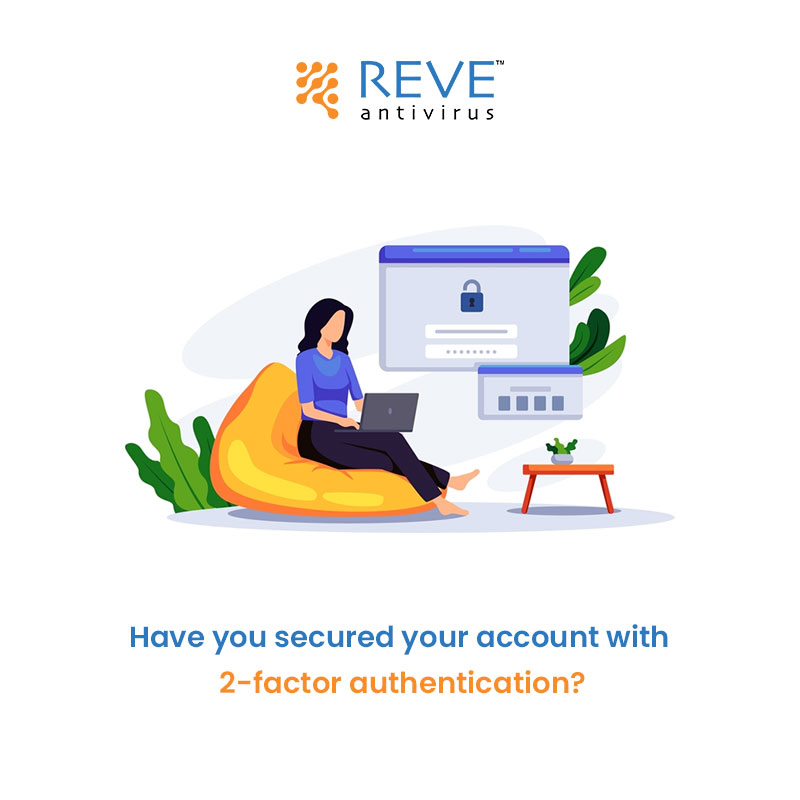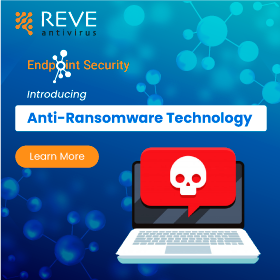
Cybersecurity is an essential aspect to consider in today’s world. The internet has become a cumbersome space to roam due to the potential cyberthreats. Different types of malwares are on the rise and are always looking for the chance when a user lets his guard down for a moment. Only a single click in the wrong link can create such a mess that was unimaginable even a decade or two ago. Along with organizational cybersecurity best practices, it’s high time to embrace some personal habits to ensure cybersecurity. Here’s our pick for top personal cybersecurity tips in 2022.
Passwords Must be Strong

Strong password checklist
Passwords are the first line of defense against personal or professional data security and cyberthreats. Yet, people have an affinity towards choosing the most common and widely used username/passwords combinations. So, using a strong password is mandatory.
What does a strong password consist of? While the length of the password itself is an important one, experts suggest the combination of different types of letters and characters is essential.
So, while creating a password do not forget to include a least
A Capital letter
A small letter
A number (i.e. 0,1,3)
A special character (i.e. !, @, #, %)
To make life difficult for the cybercriminals as well as bolster personal cybersecurity, never use the most used passwords like birthdays, family member’s names. Also, refrain from using the same password over and over again in multiple places.
Beware of Phishing and Other Scams
Phishing links and emails cause the most amount of cyberattacks. In fact, more than 33% of data breaches are a direct result of phishing. The intruder will pose someone or some link familiar to the recipient and trick them to open a malicious link.
The way to tackle this potential cyber threat is not only increasing cybersecurity through softwares and services, but also to imply organizational awareness among the employees and users.
It’s easy to click, but once trapped, it’s almost impossible to get yourself out of a phishing scam. So, maintaining personal online hygiene is a must. Suspecting and inspecting each and every link and making sure they are from a trusted, safe source helps to stay safe from the 3 billion fake emails sent globally every day!
Be Intelligent Using Social Media
There’s no denying the fact that social media has become a new part and parcel of our everyday life. As much as social media has made our life easy and more engaging, it has also increased vulnerability against different cyber threats. Hackers can now use social engineering to gain access to systems and information available openly on social media. It’s possible to leak valuable personal data through social media. As a result, being cautious and intelligent while using social media must be on the top of the list of personal cybersecurity tips.
Updates are Mandatory
Ransomware attacks often cause the most damage for both businesses and consumers. And one of the most essential cybersecurity tips is to patch old and outdated services with updates. Software patches are issued mostly to mitigate a vulnerability or recently discovered security flaw. Updating OS as well as other softwares to their latest versions with security patches is the way of moving forward.
Therefore, it’s suggested to turn on automatic system updates for all devices along with the web browsers. An interesting fact is, many people find it annoying to update patches at a regular interval. However, updates keep you safe against the risks of different types of malware and other harmful computer infections.
Rely on Two-factor Authentication

2FA or 2-factor authentication is another very important and widely prescribed in personal cybersecurity tips. It helps you to keep your account secure even if somehow the username & passwords are compromised.
How it works is, when a user provides a username & password, another OTP (one-time password) is generated in a previously authenticated device / app. This OTP is required to log into the associated account. It’s completely random which in return helps to strengthen the overall security of an account.
Protect Your PII
Personally Identifiable Information or shortly called PII is anything that can directly or indirectly identify an individual. Starting from your fingerprints, name, home address, date of birth, phone number anything can be your PII.
In the era which is dominated by social media and online communication, new and new things are adding to the above list. Hence, any personal cybersecurity tips will say that you keep your digital footprint minimal and be protective about your PII.
Set up Firewall and Use Antivirus
All the firewalls and cybersecurity products work as the main line of defense against any cybersecurity threat. Antivirus and endpoint cloud plays a vital role in blocking and eradicating all malicious attacks.
It’s essential that you use a modern antivirus or anti-malware solution to protect your personal data, and set up all the necessary firewalls as well.
Overconfidence Hurts
“I am smart, I never visit any harmful sites or links”, “This will never happen to me”, “No one can intrigue me to click a phishing link!” – these are the most detrimental thoughts ever. It’s better to remember, everyone thinks they are safe before the unimaginable happens. The criminals always find a newer and better way to attack. So it’s better to be safe than sorry.
These are our top picks for personal cybersecurity tips everyone should follow. Do you agree with our list? What steps do you take to ensure your digital security? Let us know in the comment section!
- RaaS : The Dark Side of SaaS
- Hackers Target MOVEit Transfer’s Zero-Day Vulnerability, Emergency Patch Deployed
- How Scammers Are Utilizing ChatGPT? Few Tips To Be Safe
- World Backup Day: Why Data Backups are Important in Cybersecurity
- What is Social Engineering and How Cyber Criminals Use It
- Things To Know About Personally Identifiable Information (PII)
- What is Data Breach? Why and How It occurs? How To Prevent Data Breach


